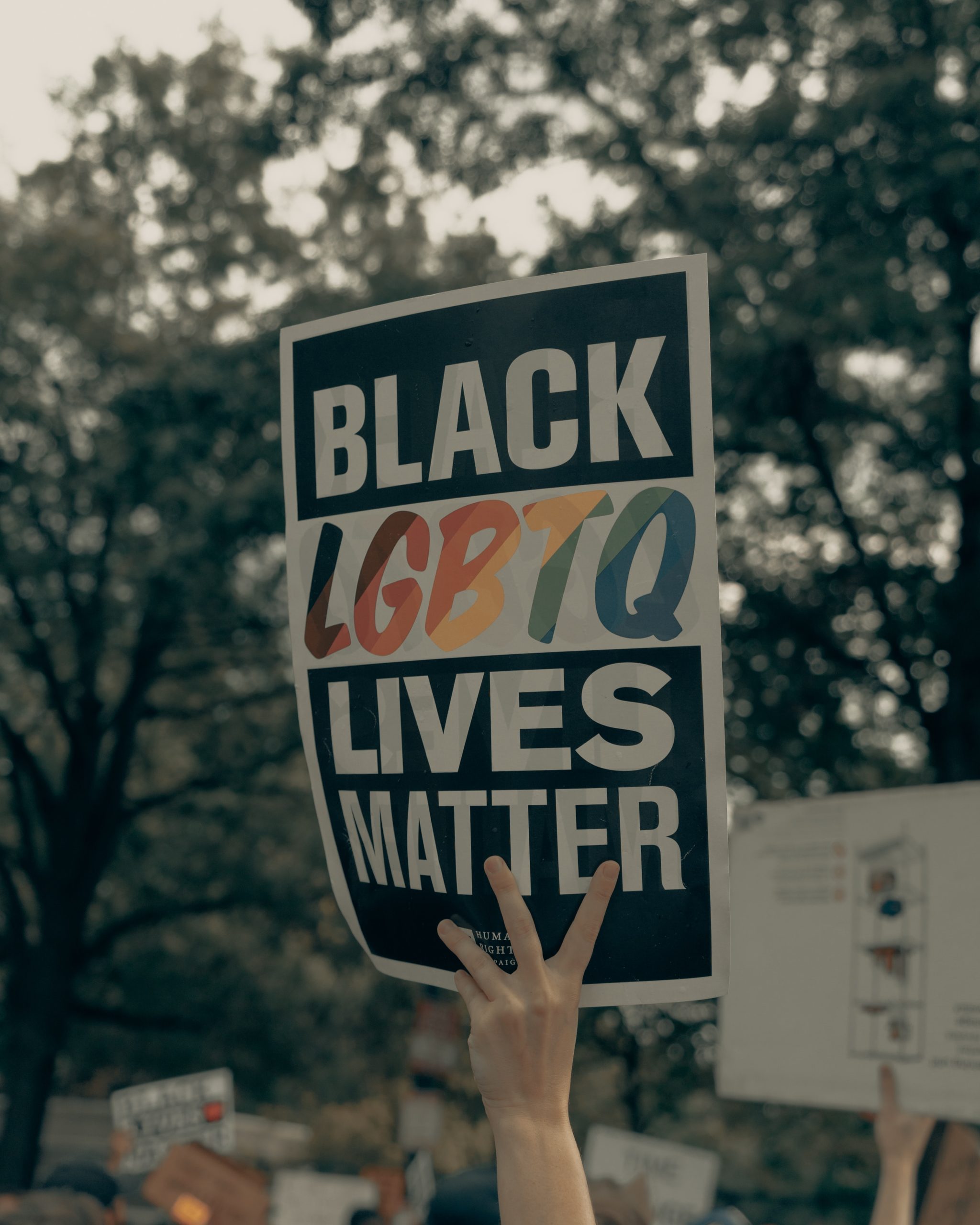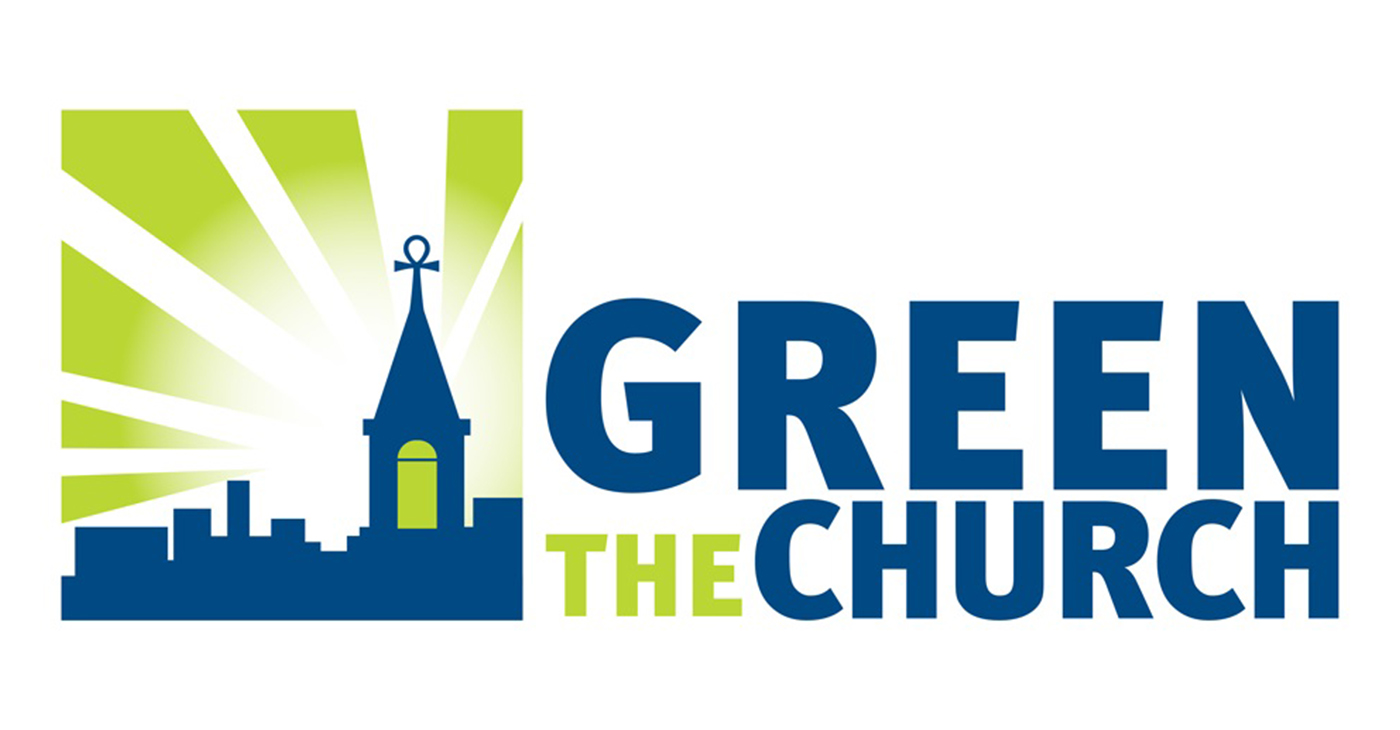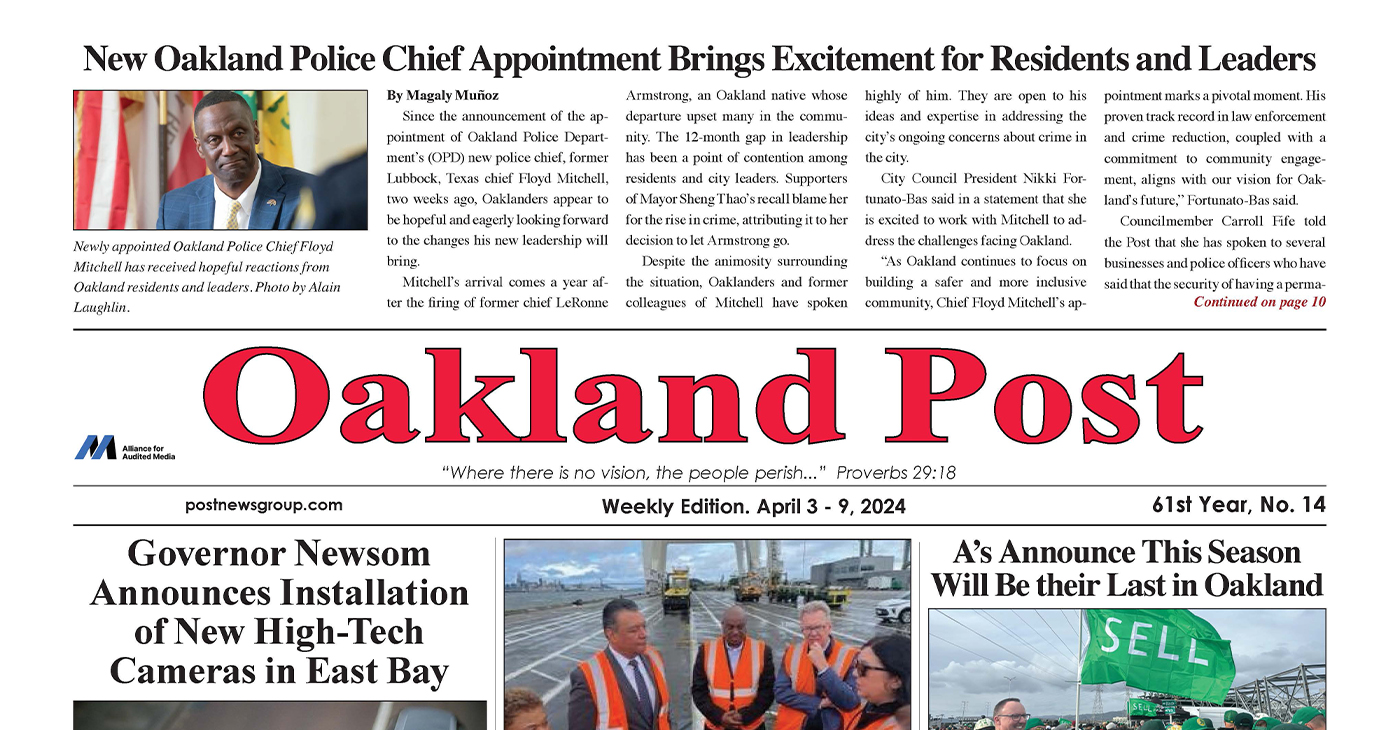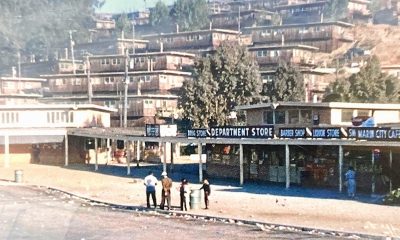Activism
Black LGBTQ+ Leaders and Allies Applaud 3 California Bills
Some of the proposed laws aim to address challenges that impact various segments of the African American LGBTQ+ community — either directly or circumstantially.

June is Pride Month and lawmakers in California are advancing a number of bills to make life safer and less difficult for people who are LGBTQ+.
Some of the proposed laws aim to address challenges that impact various segments of the African American LGBTQ+ community — either directly or circumstantially.
The first is Senate Bill (SB) 357. If the Legislature approves it, the law will repeal California Penal Code Section 653.22, which penalizes loitering with the intent to engage in sex work. This particular bill, if approved, supporters say will significantly reduce the risks and dangers many LGBTQ+ people at the lowest ends of the socioeconomic ladder face.
Many of them are young people who turn to sex work because of a number of reasons, including being unsupported by their families or the social structure because of their sexuality; trauma brought about by sexual or physical abuse; drug addiction; unemployment, among other factors.
Based on English Elizabethan “poor laws,” loitering laws in America were developed as a part of the Black Codes in the late 1800s as a means to arrest Black people in order to sell their labor in a practice called convict leasing.
“These laws were created to eradicate us,” said Dr. Jon Paul Higgins, a California-based social justice advocate and writer who is African American.
“So, when you talk about the importance of repealing these laws, it’s not even just about the law, it’s about getting to the root of what’s creating these laws,” Higgins explained.
According to the Centers for Disease Control, “many persons who exchange sex may have a history of homelessness, unemployment, incarceration, mental health issues, violence, emotional/physical/sexual abuse, and drug use.”
In California – and across the United States — a disproportionate number of African Americans are impacted by those challenges — all of them considered social determinants of good health by Public Health professionals.
Because of the vagueness of these loitering laws, many critics have noted that they gave police a wide range of arresting powers to target “undesirables” like Black people and people in the LGBTQ+ community, Higgins explained.
California State Senator Scott Wiener (D-San Francisco), author of this bill, says it would help make the streets safer for sex workers who are a part of a marginalized community.
“Sex workers are workers, and they deserve respect and safety,” Wiener said. “We must work toward a future where people — especially the most marginalized — aren’t criminalized because of who they are and what they look like. Anti-sex workers loitering laws are deeply pernicious, and they need to be repealed.”
SB 357 also allows those convicted of California Penal Code Section 653.22 to seal their records.
SB 357 was passed by the Senate Public Safety Committee 4-1 and has now been referred to the Assembly Appropriations Committee.
Another bill concerned with safety is Assembly Bill (AB) 1094, which would require the State Department of Public Health to establish a three-year pilot program in up to six participating counties to collect gender identity and sexual orientation data in violent death cases to get more accurate counts about hate crimes.
According to the Los Angeles County Commission on Human Relations 2019 Hate Crime Report, Black people accounted for 9% of the county’s population but 47% of the total racial hate crimes.
The report also stated that 2019 saw a 64% increase in hate crimes targeting trans people, many of whom were Black or Brown, according to the Human Rights Campaign.
“Yet another year with alarming levels of bias-motivated crimes underscores just how urgent it is to address this hate crimes epidemic,” said Alphonso David, Human Rights Campaign president. David is the first African American to lead the organization, the largest advocacy body for LGBTQ+ people and issues in the United States.
“This year, we saw a tragic new record of fatal violence against transgender and gender non-conforming people in this country, particularly against Black and Brown transgender women,” he said.
Following the Stonewall riots in New York, Black trans women like Marsha P. Johnson and Miss Major Griffin-Gracy became influential figures in the fight for LGBTQ+ rights at the time when discrimination and hate crimes against people like them were much more commonplace.
Assemblymember Joaquin Arambula (D-Fresno), author of AB 1094, explained why he feels the bill is crucial.
“I deeply appreciate the overwhelming support that my Assembly colleagues gave today to AB 1094,” Arambula said in a statement. “This legislation may be centered on data, but its purpose encompasses compassion and empathy to better understand what is happening in our LGTBQ+ community — particularly among the youth — when it comes to violent deaths, including homicide and suicide. AB 1094 is an important and humane step in ultimately preventing these deaths.”
AB 1094 has passed in the Assembly and is now on its way to the State Senate for consideration.
Senate Bill (SB) 379, which has now been referred to the Senate Appropriations Committee, would ensure the University of California Health System [UC Health] only contracts with healthcare facilities that provide LGBTQ-inclusive healthcare services, such as gender-affirming and reproductive care.
According to Blue Cross Blue Shield, Black mothers’ maternal mortality rate is 63% higher than white mothers while Black men are 70% more likely to die from a stroke as compared to non-Hispanic White men.
People in the LGBTQ+ community are less likely to have access to competent healthcare, largely due to issues with discrimination, according to Cigna.
Higgins spoke from personal experience about the intersectional nature of being both Black and in the LGBTQ+ community.
“For me, being a Black nonbinary person and meeting a provider who has all of these bias ideologies or stereotypes about Black people… there are all of these preconceived notions about who I am as a Black person and then you add on the nonbinary-slash-trans part of it, there’s just a lot of underlying stereotypes and bias,” Higgins said.
Jasmyne Cannick, founder and CEO of Empowerment Justice Strategies, praised this bill for moving with the tides of progress.
“In 2021, it makes absolute sense for UC Health to contract with healthcare facilities that provide LGBTQ-inclusive healthcare services given the population that it serves,” Cannick said.
“We are moving towards a more inclusive society, and these are the types of bills that will ensure that members of the LGBTQ+ community can receive healthcare they need,” she continued.
Higgins, Cannick and other advocates say it means a great deal that California lawmakers are making an effort to ensure that these “warriors” can continue to do so safely, and that those who just wish to live their lives without fear for being who they are may do so more boldly.
Activism
Oakland’s ‘Green the Church,’ Others, Host a Climate Revival
On April 20, Oakland’s Green The Church California (GTC) and the Center For Food, Faith and Justice will celebrate Earth Day and present a Climate Revival event titled “Growing Healthy Communities From Soil To The Soul” at McGee Avenue Baptist Church at 1640 Stuart St, Berkeley, CA. The day will include inspiring talks, interactive workshops, networking opportunities, and a special panel on Food Sovereignty and Global Food Resilience.

Growing Healthy Communities from Soil to the Soul in Berkeley
By Y’Anad Burrell
On April 20, Oakland’s Green The Church California (GTC) and the Center For Food, Faith and Justice will celebrate Earth Day and present a Climate Revival event titled “Growing Healthy Communities From Soil To The Soul” at McGee Avenue Baptist Church at 1640 Stuart St, Berkeley, CA,
The day will include inspiring talks, interactive workshops, networking opportunities, and a special panel on Food Sovereignty and Global Food Resilience.
The keynote speaker is Rev. Danté R. Quick, PhD, senior pastor of First Baptist Church of Lincoln Gardens in Somerset, N.J. Quick is well known in the Bay Area, having served for more than 10 years as pastor of Friendship Missionary Baptist Church in Vallejo, CA.
Green The Church, founded in 2010 by Rev. Dr. Ambrose Carroll, Sr., and headquartered in Oakland, helps galvanize Black churches and their local communities and leaders to address issues critical to populations historically disengaged from conversations around pollution and health, climate change, and sustainability and energy efficiency.
The organization collaborates with major environmental, sustainability, food security, faith, and community-based non-profit organizations, and is committed to “creation justice”—care and justice for God’s people and the planet—and building the Beloved Community.
Environmental justice has long been a pressing concern for communities of color who bear the brunt of pollution and ecological degradation. Climate change exacerbates these issues, disproportionately impacting vulnerable communities. Recognizing this urgency, Black churches across the country are taking action.
With deep roots in the African American community and its commitment to social justice, the Black Church has become an essential advocate for sustainable practices and policies.
Over the past 14 years, in a powerful collaboration with significant environmental, sustainability, food security, faith, and community-based non-profit organizations, GTC has created a cadre of Black churches engaging in the environmental justice, climate, and sustainability movement.
GTC presently works with more than 1,000 pastors and congregations across the U.S., and groups in the Bahamas, Ghana, Nigeria, and the UK, showing that we can make a difference together.
The partnership between environmental justice advocates and the Black Church extends beyond individual congregations. Green The Church provides resources and support for faith communities seeking to address climate change and promote environmental justice.
Through collaboration, initiatives such as energy efficiency programs, solar installations, and environmental education have been implemented in Black churches nationwide. These efforts reduce the carbon footprint and save money on energy bills, benefiting the congregations and their communities.
The involvement of the Black Church in the fight against climate change is not just a participation, it’s a powerful message that galvanizes action across communities.
By integrating environmental justice into their ministry, Black churches are demonstrating that addressing climate change is not only a matter of science but also of social and moral responsibility, inspiring change at a grassroots level.
For more information, go to: www.greenthechurch.org.
Activism
Oakland Post: Week of April 10 – 16, 2024
The printed Weekly Edition of the Oakland Post: Week of April 10 – 16, 2024

To enlarge your view of this issue, use the slider, magnifying glass icon or full page icon in the lower right corner of the browser window. ![]()
Activism
Oakland Post: Week of April 3 – 6, 2024
The printed Weekly Edition of the Oakland Post: Week of April 3 – 6, 2024

To enlarge your view of this issue, use the slider, magnifying glass icon or full page icon in the lower right corner of the browser window. ![]()
-

 Activism4 weeks ago
Activism4 weeks agoOakland Post: Week of March 20 – 26, 2024
-

 #NNPA BlackPress3 weeks ago
#NNPA BlackPress3 weeks agoCOMMENTARY: D.C. Crime Bill Fails to Address Root Causes of Violence and Incarceration
-

 #NNPA BlackPress3 weeks ago
#NNPA BlackPress3 weeks agoMayor, City Council President React to May 31 Closing of Birmingham-Southern College
-

 #NNPA BlackPress3 weeks ago
#NNPA BlackPress3 weeks agoFrom Raids to Revelations: The Dark Turn in Sean ‘Diddy’ Combs’ Saga
-

 #NNPA BlackPress3 weeks ago
#NNPA BlackPress3 weeks agoCOMMENTARY: Lady Day and The Lights!
-

 #NNPA BlackPress3 weeks ago
#NNPA BlackPress3 weeks agoBaltimore Key Bridge Catastrophe: A City’s Heartbreak and a Nation’s Alarm
-

 #NNPA BlackPress3 weeks ago
#NNPA BlackPress3 weeks agoBaltimore’s Key Bridge Struck by Ship, Collapses into Water
-

 Activism3 weeks ago
Activism3 weeks agoOakland Post: Week of March 27 – April 2, 2024














































